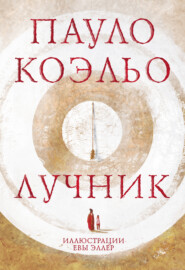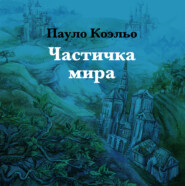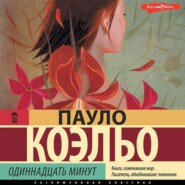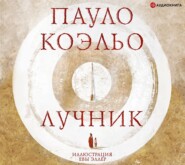По всем вопросам обращайтесь на: info@litportal.ru
(©) 2003-2025.
✖
Veronika Decides to Die
Автор
Год написания книги
2019
Настройки чтения
Размер шрифта
Высота строк
Поля
‘Nothing, I was just passing.’
They exchanged glances, and made a few mad gestures with their heads. One said to the other: ‘She was just passing.’ The other repeated the remark more loudly this time and soon they were all shouting the same words.
Veronika didn’t know what to do and stood there paralysed with fear. A burly, shifty-looking male nurse came over, wanting to know what was going on.
‘Nothing,’ said one member of the group. ‘She was just passing. She’s standing right there, but she’s still just passing.’
The whole group fell about laughing. Veronika assumed an ironic air, smiled, turned and moved off, so that no one would notice that her eyes were filling with tears. She went straight out into the garden, without bothering to put on a coat or jacket. A nurse tried to convince her to come back in, but another appeared soon after and whispered something in his ear, and the two of them left her in peace, in the cold. There was no point taking care of the health of someone who was condemned to die.
She was confused, tense, irritated with herself. She had never allowed herself to be provoked; she had learned from early on that, whenever a new situation presented itself, you had to remain cool and distant. Those mad people, however, had managed to make her feel shame, fear, rage, a desire to murder them all, to wound them with words she hadn’t dared to utter.
Perhaps the pills or the treatment they had administered to get her out of her coma had transformed her into a frail woman, incapable of fending for herself. She had confronted far worse situations in her adolescence, and yet for the first time, she had been unable to hold back her tears. She needed to get back to the person she used to be, someone able to respond with irony, to pretend that the insults didn’t bother her because she was better than all of them. Who, in that group, had had the courage to desire death? Who amongst them could teach her about life when they were all huddled behind the walls of Villete? She would never want to depend on their help for anything, even if she had to wait five or six days to die.
‘One day’s already gone. There are only another four or five left.’
She walked a little, letting the freezing cold enter her body and calm the blood that was flowing too fast, her heart that was beating too hard.
‘Honestly, here I am, with my days literally numbered, giving importance to remarks made by people I’ve never even seen before, people who soon I’ll never see again. And yet I suffer and get upset, I want to attack and defend. Why waste my time?’
But she was wasting the little time left to her, fighting for her tiny bit of space in that strange community where you had to put up a fight if you didn’t want others imposing their rules on you.
‘I can’t believe it, I never used to be like this. I never used to fight over stupid things.’
She stopped in the middle of the icy garden. It was precisely because she had found everything so stupid that she had ended up accepting what life had naturally imposed on her. In adolescence, she thought it was too early to choose; now, in youth, she was convinced it was too late to change.
And what had she spent all her energies on until then? On trying to ensure that her life continued exactly as it always had. She had given up many of her desires so that her parents would continue to love her as they had when she was a child, even though she knew that real love changes and grows with time and discovers new ways of expressing itself. One day, when she had listened to her mother telling her, in tears, that her marriage was over, Veronika had sought out her father; she had cried, threatened and finally extracted a promise from him that he would not leave home, never imagining the high price her parents would have to pay for this.
When she decided to get a job, she rejected a tempting offer from a company that had just been set up in her recently created country in favour of a job at the public library, where you didn’t earn much money, but where you were secure. She went to work every day, always keeping to the same timetable, always making sure she wasn’t perceived as a threat by her superiors; she was contented, she didn’t struggle and so she didn’t grow: all she wanted was her salary at the end of the month.
She rented the room in the convent because the nuns required all tenants to be back at a certain hour, and then they locked the door: anyone still outside after that had to sleep in the street. She always had a genuine excuse to give boyfriends, so as not to have to spend the night in hotel rooms or strange beds.
When she used to dream of getting married, she imagined herself in a little house outside Ljubljana, with a man quite different from her father, a man who earned enough to support his family, one who would be contented just to be with her in a house with an open fire and to look out at the snow-covered mountains.
She had taught herself to give men a precise amount of pleasure, never more, never less, only what was necessary. She didn’t get angry with anyone, because that would mean having to react, having to do battle with the enemy, and then having to face unforeseen consequences, such as vengeance.
When she had achieved almost everything she wanted in life, she had reached the conclusion that her existence had no meaning, because every day was the same. And she had decided to die.
Veronika went back in and walked over to the group gathered in one corner of the room. The people were talking animatedly, but fell silent as soon as she approached.
She went straight over to the oldest man, who seemed to be the leader. Before anyone could stop her, she gave him a resounding slap in the face.
‘Aren’t you going to react?’ she asked out loud, so that everyone in the room could hear her. ‘Aren’t you going to do something?’
‘No,’ the man said and passed a hand over his face. A little thread of blood ran from his nose. ‘You won’t be troubling us for very long.’
She left the lounge and went triumphantly back to her ward. She had done something that she had never done in her entire life.
Three days had passed since the incident with the group that Zedka called the Fraternity. Veronika regretted that slap, not because she was afraid of the man’s reaction, but because she had done something different. If she wasn’t careful, she might end up convinced that life was worth living, and that would cause her pointless pain, since she would soon have to leave this world anyway.
Her only option was to keep away from everything and everyone, to try to be in every way as she had been before, to obey Villete’s rules and regulations. She adapted herself to the routine imposed by the hospital: rising early, having breakfast, going for a walk in the garden, having lunch, going to the lounge, for another walk in the garden, then supper, television and bed.
Before Veronika went to sleep, a nurse always appeared with medication. All the other women took pills, Veronika was the only one who was given an injection. She never complained, she just wanted to know why she was given so many sedatives, since she had never had any problems sleeping. They explained that the injection was not a sedative, but medication for her heart.
And so, by falling in with that routine, her days in the hospital all began to seem the same. When the days are all the same, they pass more quickly; in another two or three days she would no longer have to brush her teeth or comb her hair. Veronika noticed her heart growing rapidly weaker: she became easily out of breath, she got pains in her chest, she had no appetite, and the slightest effort made her dizzy.
After the incident with the Fraternity, she had sometimes thought: ‘If I had a choice, if I had understood earlier that the reason my days were all the same was because I wanted them like that, perhaps…’
But the reply was always the same: ‘There is no perhaps, because there is no choice.’ And her inner peace returned, because everything had already been decided.
During this period, she formed a relationship with Zedka (not a friendship, because friendship requires a lot of time spent together, and that wouldn’t be possible). They used to play cards – which helps the time pass more rapidly – and sometimes they would walk together, in silence, in the garden.
On one particular morning, immediately after breakfast, they all went out to take the sun, as the regulations demanded. A nurse, however, asked Zedka to go back to the ward, because it was her treatment day.
Veronika, who was having breakfast with her, heard the request.
‘What treatment’s that?’
‘It’s an old treatment, from the sixties, but the doctors think it might hasten my recovery. Do you want to come and watch?’
‘You said you were depressed. Isn’t taking the medication enough to replace the chemical you’re lacking?’
‘Do you want to watch?’ insisted Zedka.
She was going to step outside the routine, thought Veronika. She was going to discover new things, when she didn’t need to learn anything more – all she needed was patience. But her curiosity got the better of her and she nodded.
‘This isn’t a show, you know,’ said the nurse.
‘She’s going to die. She’s hardly seen anything. Let her come with us.’
Veronika watched (#ulink_fa8724f0-0469-55a8-ad5f-fea0cc5ef251)the woman, still smiling, being strapped to the bed.
‘Tell her what’s going on,’ said Zedka to the male nurse. ‘Otherwise she’ll be frightened.’
He turned and showed her the syringe. He seemed pleased to be treated like a doctor, explaining to a younger doctor the correct procedures and the proper treatments.
‘This syringe contains a dose of insulin,’ he said, speaking in a grave, technical tone of voice. ‘It’s used by diabetics to combat high blood glucose. However, when the dose is much larger than normal, the consequent drop in blood glucose provokes a state of coma.’
He tapped the needle lightly, to get rid of any air, and then stuck it in a vein in Zedka’s right foot.
‘That’s what’s going to happen now. She’s going to enter a state of induced coma. Don’t be frightened if her eyes go glazed, and don’t expect her to recognise you when she’s under the effects of the medication.’
‘That’s awful, inhuman. People struggle to get out of a coma not to go into one.’
‘People struggle to live, not to commit suicide,’ replied the nurse, but Veronika ignored the remark. ‘And a state of coma allows the organism to rest; its functions are all drastically reduced and any existing tension disappears.’
While he was talking, he was injecting the liquid, and Zedka’s eyes were growing dull.
‘Don’t worry,’ Veronika was saying to her. ‘You’re absolutely normal, the story you told me about the king…’

















